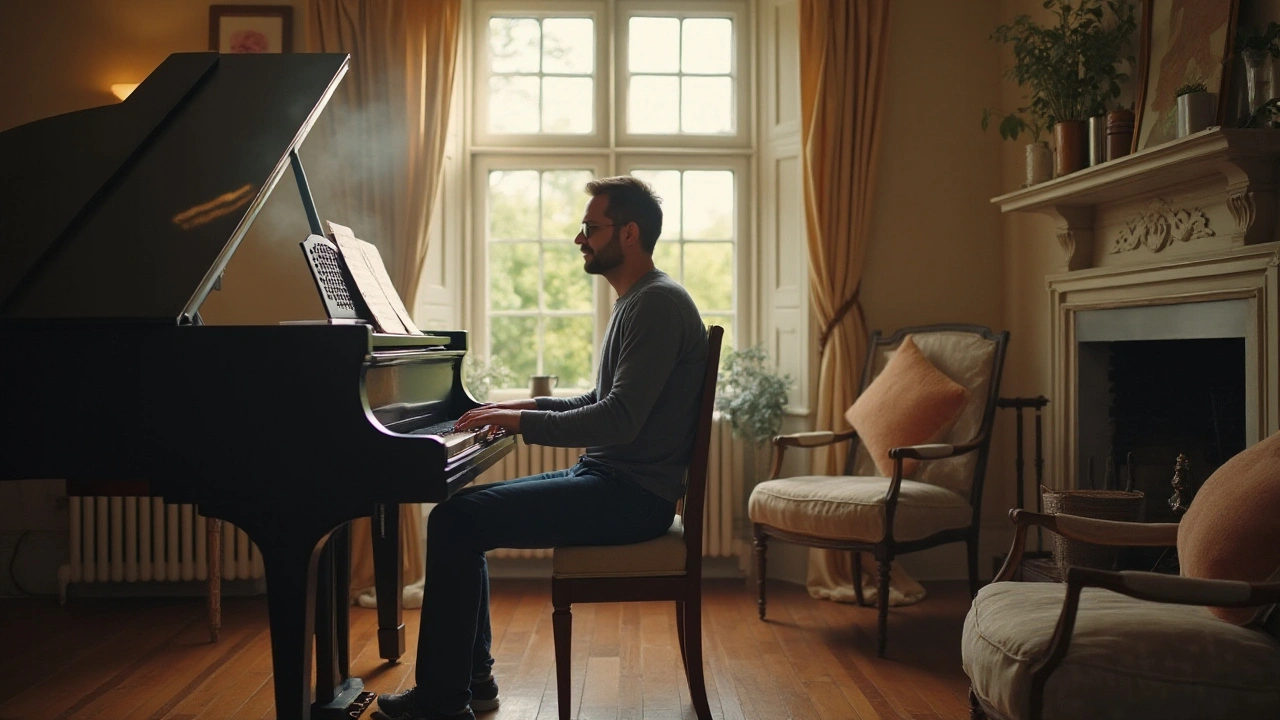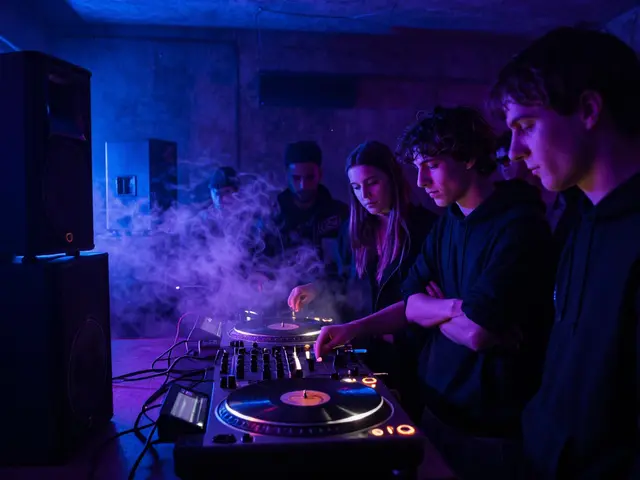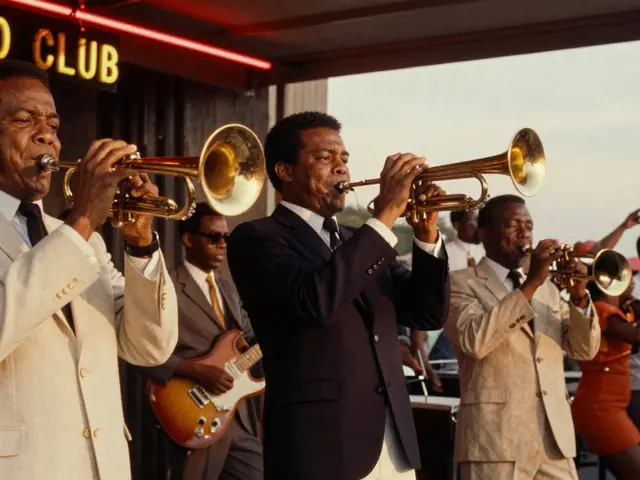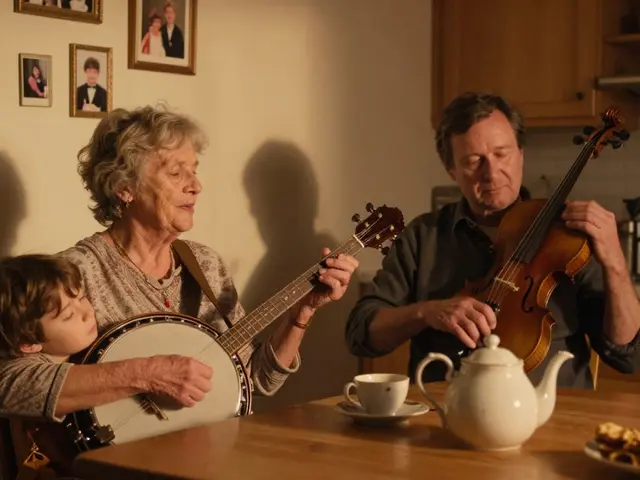Looking to make piano a regular part of your life, but not sure where to start? Integrating this wonderful instrument into your daily routine can be a rewarding experience, no matter your skill level. By creating a structured yet flexible practice schedule, you can enjoy the satisfaction of consistent progress.
Whether you're aiming for technical proficiency or simply the joy of playing, establishing a routine that fits your lifestyle makes all the difference. From understanding the mental and emotional benefits to curating your personal practice space, there are several approaches to becoming more disciplined and enthusiastic in your musical journey. Let's explore some effective strategies to help you make piano an engaging and enriching part of your day.
- Understanding the Benefits of Daily Piano Practice
- Creating a Dedicated Practice Space
- Setting Realistic Goals for Skill Development
- Incorporating Fun and Creativity into Practice
Understanding the Benefits of Daily Piano Practice
Immersing oneself in the world of music through the piano practice can have transformative effects on both mind and body, which people often overlook. Not only does it serve as a delightful outlet for creative expression, but daily practice also sharpens cognitive abilities, improves emotional well-being, and refines fine motor skills. Studies have shown that engaging with music activates multiple areas of the brain, facilitating more efficient information processing and memory retention. Just like physical exercise strengthens muscles, regular musical practice conditions the brain, enhancing spatial reasoning and problem-solving abilities.
A consistent piano routine brings balance to one's emotional and mental landscape. As you embrace the rhythms and harmonies, stress levels drop significantly, offering a reprieve from the fast-paced digital world. The piano becomes a sanctuary—a place where thoughts can wander freely, imagination can soar, and feelings can find expression without judgment. Playing piano each day nurtures patience and resilience as musicians learn to navigate challenges and celebrate small victories, contributing positively to mental health.
Furthermore, integrating musical habits into your daily life fosters discipline and concentration, qualities that seep into other areas such as academics or professional endeavors. Learning a piece of music requires focus and perseverance, skills that continue to bolster personal growth outside the realm of music. As you tackle new compositions, experiment with diverse styles, and refine your technique, you cultivate an ever-evolving relationship with the piano. The journey is uniquely rewarding, where each note played is not just an exercise in dexterity but a step towards personal fulfillment.
"Music is the divine way to tell beautiful, poetic things to the heart," said Pablo Casals, a renowned cellist and conductor, encapsulating the essence of what draws us to the piano day after day.
Incorporating consistent piano practice into your daily routine paves the path for lifelong learning, joy, and enrichment. As a young brain develops with the rigors of learning instruments, seniors, too, find mental agility in those ivory keys, potentially staving off cognitive decline. The accessibility of online tutorials and piano software further democratizes musical education, making it easier than ever to enjoy the benefits of this practice. Whether you're mastering Beethoven or jazz improvisation, every session at the piano becomes a powerful tool for self-discovery and happiness—a truth musicians have cherished for centuries.
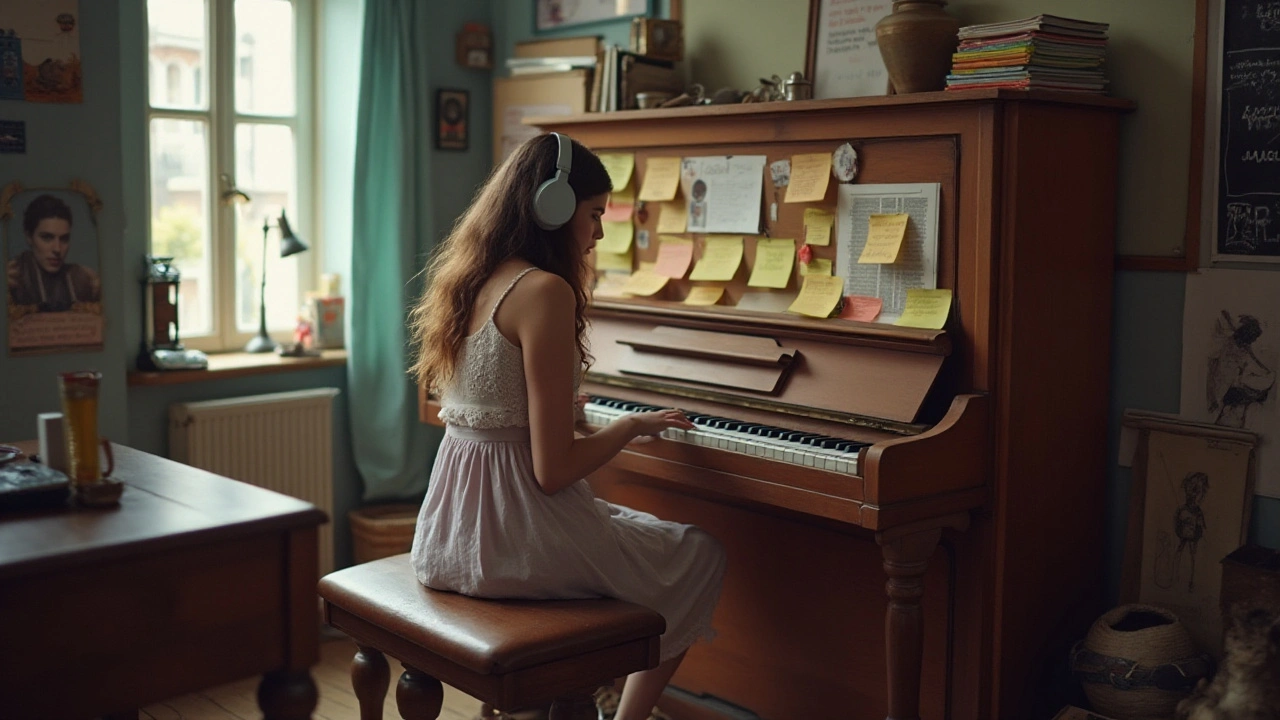
Creating a Dedicated Practice Space
Establishing a dedicated practice space is a crucial step toward making piano a part of your daily routine. It is about creating an environment that both inspires and fosters concentration. Start by considering the location. Ideally, the piano should be in a quiet area of your home, away from distractions like the television or high-traffic areas. A corner of a living room or a spare room can work perfectly, as long as it provides the tranquility needed to focus on your piano practice. Lighting is another important factor. Natural light, when available, offers a soothing atmosphere, but adequate artificial lighting is also essential for those late-night sessions.
The next step is to ensure that your space is comfortable and ergonomically friendly. The height of the piano bench can make a significant difference. It should be adjusted to your height for correct posture, helping to prevent strain or fatigue during extended daily routine sessions. A comfortable cushion might be added for extra support. It is also beneficial to have a music stand or a holder for your sheet music, allowing you to keep your practice materials organized and easily visible.
Adding a Personal Touch
To make your practice space truly yours, consider adding personal touches that encourage creativity and motivation. This could include framed photos of your favorite musicians, inspirational quotes, or even a small plant that adds a touch of nature. Surrounding yourself with things that inspire you can make your practice time more enjoyable and productive. A well-organized space with tidiness in mind might also include a small bookshelf or a storage box for keeping your piano books, notes, and recordings in order. This neatness not only minimizes procrastination but also saves time that could be better spent on developing those musical skills.
"The piano is able to communicate the subtlest universal truths, by means of wood, metal and vibrating air." - Kenneth Miller
By placing your piano in a particular spot, you inherently communicate that this instrument is an integral part of your life. Remember, a well-structured space boosts the appeal of practicing rather than viewing it as a chore. It makes you eager to sit down and spend some quality time with your instrument. This commitment to creating a dedicated practice area reflects directly on your progress and dedication to learning the piano. With such a space, you set the stage for a musical habit that is both fruitful and fulfilling.
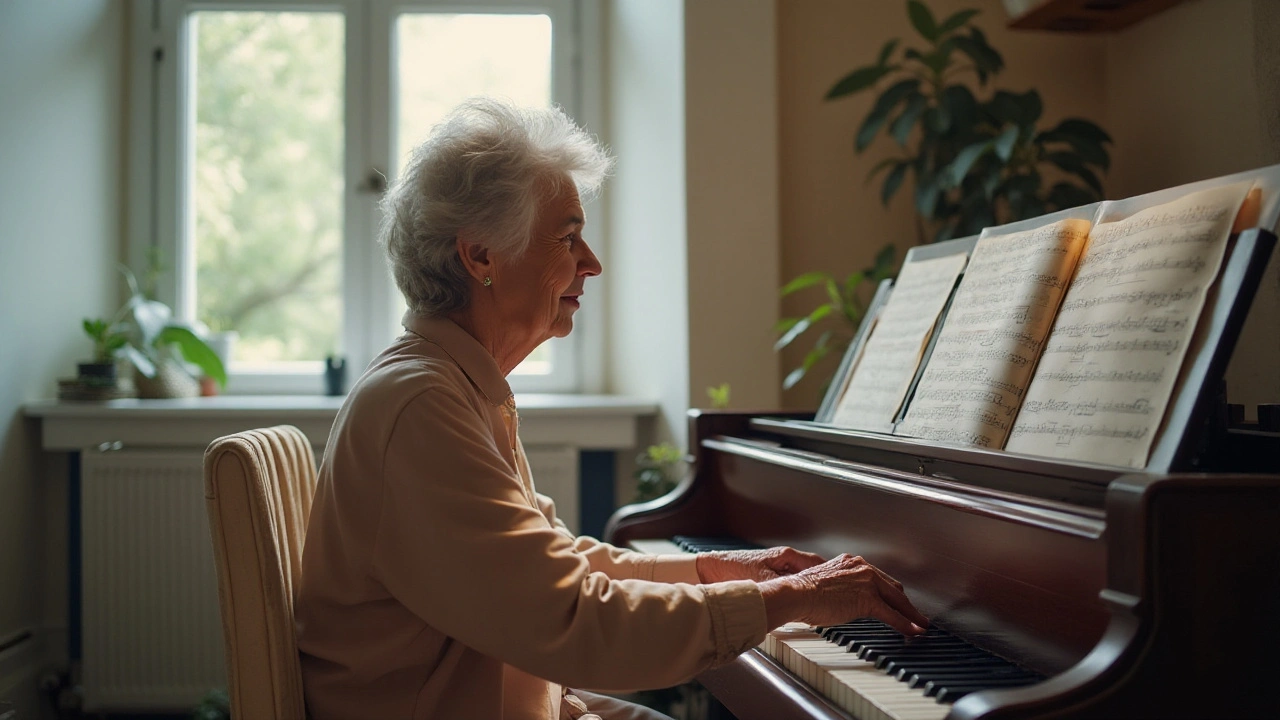
Setting Realistic Goals for Skill Development
When it comes to incorporating piano practice into your daily routine, the key is to set realistic goals that are both tangible and motivating. Approaching your musical journey with clear objectives not only helps maintain a steady progression, but it also adds a sense of achievement as you reach each milestone. Start by assessing your current skill level and identifying the areas you want to improve. Maybe you wish to master a specific piece, enhance your sight-reading skills, or simply gain fluency in scales and arpeggios. Break these broader ambitions into smaller, manageable goals that can be tackled on a daily or weekly basis.
One effective way to map out your piano practice is to create a structured schedule that combines technical work with personal enjoyment. Dedicate certain days for different aspects of learning, balancing theory exercises with practical applications. This ensures you remain engaged and avoid the monotony that can stifle progress. A study by Anders Ericsson popularized the idea of deliberate practice, emphasizing that focused and purposeful practice is crucial for skill advancement. This method encourages setting specific goals for each session, such as mastering a particular section of a song or improving hand coordination. Dividing your time into focused practice segments allows for deeper engagement and facilitates more efficient learning.
Consider adopting the SMART criteria when setting your musical goals: Specific, Measurable, Achievable, Relevant, and Time-bound. For instance, you might aim to learn the first movement of Beethoven's Moonlight Sonata over a month, practicing it for at least 20 minutes a day. This approach not only provides you with clarity but also keeps motivation high as you track your incremental improvements. Remember, progress should be celebrated, no matter how small, as it leads to building confidence and sustained practice.
To nurture creativity and maintain interest, inject variety into your goals. Incorporate different genres, experiment with improvisation, or indulge in playing by ear. This fosters a well-rounded skill set and keeps you energized on your learning path. Embrace plateaus as well; they are a natural part of the process. Learning to leverage these pauses as an opportunity to reinforce existing skills rather than seeing them as setbacks helps build a stronger foundation. Master pianist Arthur Schnabel once said,
“The notes I handle no better than many pianists. But the pauses between the notes - ah, that is where the art resides.”Such quotes resonate with the importance of patience and mindfulness in your practice.
It's crucial to reflect regularly on your goals to ensure they align with your evolving interests and lifestyle. Flexibility allows for adjustment and improvement. While sticking to practice times is important, don't hesitate to revisit and recalibrate your objectives as necessary. This adaptability ensures long-term engagement and fulfillment in your piano journey.

Incorporating Fun and Creativity into Practice
When it comes to making your piano practice sessions more engaging, adding a touch of fun and creativity can be tremendously beneficial. It's important to realize that learning an instrument doesn't have to be an arduous task. Music is, at its core, a form of expression, and by exploring different creative avenues, you can make your practice time something that you genuinely look forward to each day. One effective method is to integrate music that you're personally passionate about. Whether it's learning to play your favorite song or experimenting with different genres that intrigue you, such practices can lighten the monotony of repetition. Adding variety keeps your mind stimulated and eager to sit down at the keys each day.
For those keen on collaboration, consider joining local community groups or even virtual forums dedicated to musicians. Being a part of a community not only provides support but fuels inspiration through shared goals and challenges. You might also participate in duet performances, which can be a delightful aspect of daily routine practice and enhance your cooperative skills. According to Leonard Bernstein, a prominent conductor and composer, "To achieve great things, two things are needed; a plan and not quite enough time,” which speaks to the urgency and commitment that often breeds greatness when working collaboratively.
Improvisation is another fantastic strategy for injecting creativity into your routine. Allow yourself to step away from sheet music and explore the piano freely, playing what feels right in the moment. This method not only relaxes the mind but encourages a deeper understanding of the instrument's dynamics. Another fun method is to convert your environment into a lively practice session—playing along with upbeat rhythms or using background tracks can transform mundane scales into an energetic workout. Games and apps designed to enhance musical skills conceptually through play also serve as excellent tools, offering practical challenges without the grind.
Lastly, setting imaginative challenges for yourself can breathe new life into your practices. For instance, record yourself and analyze your progress over time. This not only builds confidence but serves as a tangible measure of the strides you’re making. Try composing a short piece or rearranging an existing score by adding your personal touch, thereby furthering your understanding of musical structure. By taking steps to actively enjoy every session, you'll find that daily practice becomes less of a chore and more of an artistic adventure.

